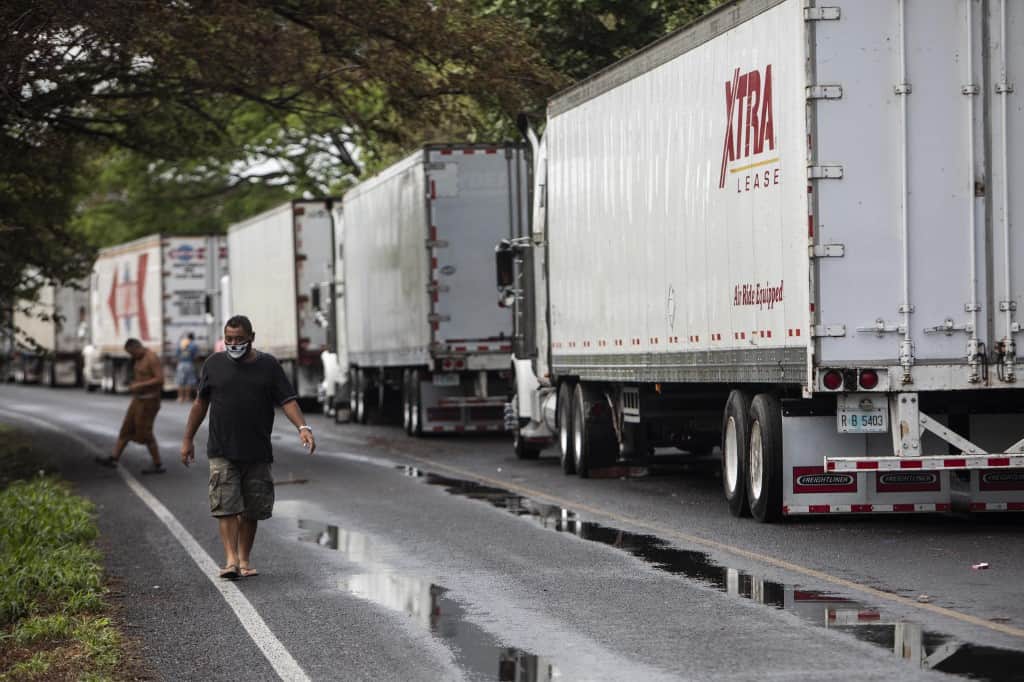Costa Rica and Nicaragua announced the reopening of their border to cargo transportation, which had been blocked for almost three weeks by by measures and protests related to the coronavirus pandemic.
“I want to inform you that a few minutes ago, the northern border was reopened in the area of Peñas Blancas,” Costa Rican Minister of Security, Michael Soto, wrote Sunday on Twitter.
Deseo informarles que hace unos minutos fue reabierta la frontera norte en la zona de #PeñasBlancas. Mantendremos presencia en la zona para coordinar los traslados. pic.twitter.com/Ctx1UfRvLK— Michael Soto Rojas (@MichaelSoto_CR) June 1, 2020
For his part, the president of the Nicaraguan Transporters Association (ATN), Marvin Altamirano, confirmed the reopening to press and asked Central American companies to wait for traffic to be unblocked to move new merchandise.
“We are asking them to wait a few days” to make way for the trucks that have been stuck at the Costa Rica-Nicaragua border, he said.
The opening came a day after the Central American governments reached an agreement to resume the flow of goods in the region, with security measures to face the pandemic.
The border between Costa Rica and Nicaragua had been blocked by truckers on the Nicaraguan side who were protesting the conditions imposed by San José for the entry of cargo, after numerous carriers tested positive for the coronavirus.
The Minister of Foreign Trade of Costa Rica, Dyalá Jiménez, told journalists that her government agreed to relax the measures so that foreign carriers can stay up to five days in Costa Rica while leaving merchandise and picking up another load to take back to Nicaragua or elsewhere.
Originally, San José wanted Central American truckers to stay a maximum of three days in its territory.
“We have just been informed that the first unit entered Costa Rican territory from Nicaraguan territory at the Peñas Blancas border post,” Jiménez said.
Under the agreement, asymptomatic truckers won’t all be tested for the coronavirus, as Costa Rica had previously planned. Instead, Costa Rican authorities will focus on monitoring the routes and destinations that carriers take.
Some will be monitored by GPS devices, and traffic police will establish checkpoints throughout the national territory, authorities said Monday.
For its part, Managua established that Costa Rican truckers may enter its territory to leave their merchandise at fiscal warehouses guarded by police.
About 90% of trade between Central American countries is mobilized by land.






